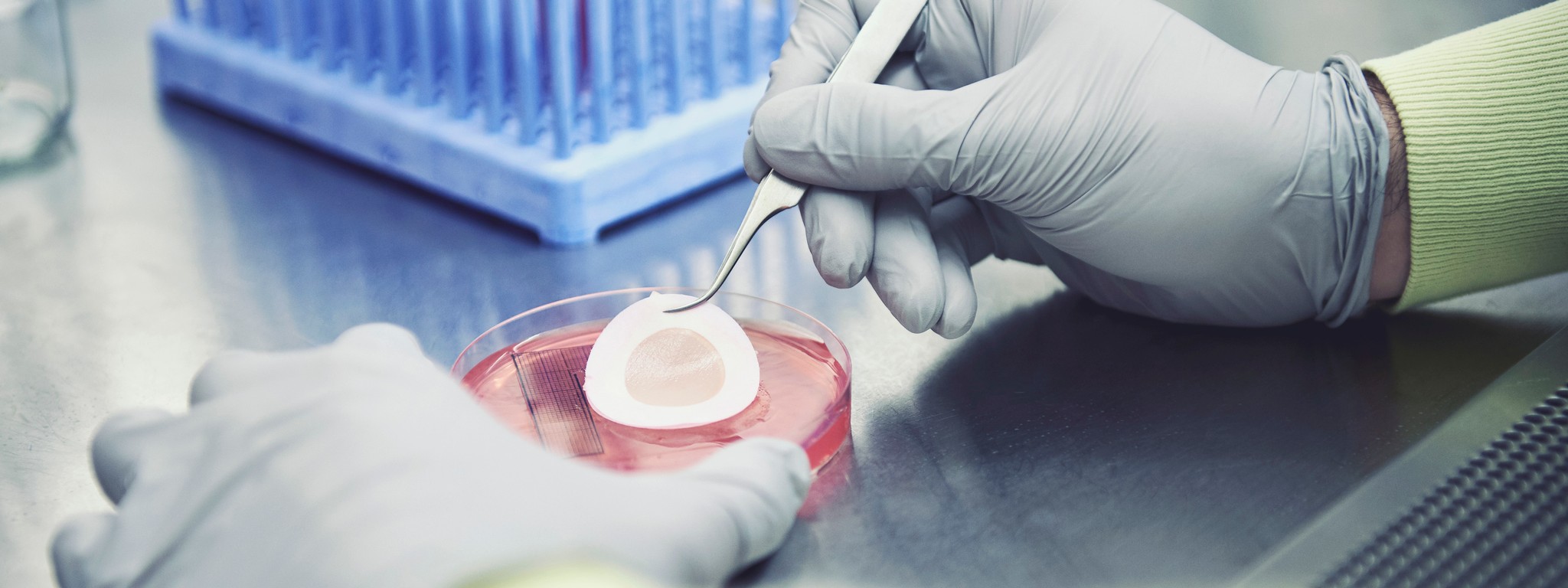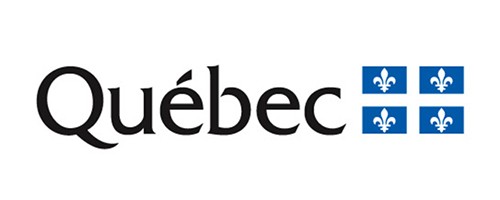Life sciences and health technology research in Québec City
Does health research fascinate you? Did you know that the Québec City region is very prolific in this area? It is known for, among other things, its ability to combine science and know-how in research.
Université Laval is a the centre of this hub. It is ranked among the top 10 research universities in Canada, and it has the expertise and influence of professors who are recognized around the world. Its health and social services research centres’ discoveries are helping to shape a society in which health and well-being are sustainable.
Here you will learn more about Québec City’s vitality and fertility in the field of life sciences research and health technology.

Research centres that help promote health
What enables the health and science community to evolve and innovate? Research, of course. As you know, researchers discover and develop new technologies, new treatments and make advances in life sciences.
In the Québec City region, the field of research abounds with its many research centres. Check out some of the ones below to learn more about their work.
Centre de recherche du CHU de Québec – Université Laval
As the largest Francophone health research centre in North America, the CHU de Québec has an enviable national and international reputation. With its 7 axes of fundamental or clinical research, it brings together more than 500 researchers and research activities from the Centre hospitalier de l’Université Laval or CHUL, as follows:
- Hôtel-Dieu de Québec
- Enfant-Jésus
- Saint-François d'Assise
- Saint-Sacrement
Would you like to know more about this institution’s activities? Check the Centre de recherche du CHU de Québec website.
Infectious Diseases Research Centre (CRI)
Did you know that Québec City is home to Canada’s largest infectiology research centre, which is also 5th largest in the world? The CRI is a centre working to:
- Understand infectious diseases
- Develop new approaches to:
- Diagnose them
- Prevent them
Treat them
It has about 20 fundamental researchers and clinicians, who have been working together since 1974 to reduce the impact of infectious diseases both here and around the world.
Does this interest you? Read more on the Université Laval’s Infectious Diseases Research Centre’s page.
Québec Heart and Lung Institute (CRIUCPQ)
The CRIUCPQ is an significant research centre in the field of cardiology, pneumology, human metabolism/obesity and type 2 diabetes. It’s a world research leader in these sectors, and is the only research centre funded by the Fonds de recherche du Québec. Why? Because the focus of its research, which includes obesity, diabetes and metabolism, are considered a priority because of their economic and societal impact.
To learn more about the CRIUCPQ’s work, visit Québec Heart and Lung Institute’s Research Centre’s page.
CERVO Brain Research Centre
Have you heard of the CERVO Brain Research Centre? It is one of the largest neuroscience and mental health research centres in Canada. Its approximately 60 researchers and their teams together possess multidisciplinary expertise, from membrane biophysics to social intervention.
Get more information about the centre and its array of research on the Université Laval’s CERVO Brain Research Centre page.
Centre interdisciplinaire de recherche en réadaptation et intégration sociale (CIRRIS)
Have you heard of CIRRIS before? It is a research centre specializing in the study of personal and environmental factors that influence the social participation of people living with a physical disability. Its mission is to "Contribute to the development and dissemination of knowledge in the field of adaptation, rehabilitation and support for social integration".
Do you want to know more about its work? Visit the Centre for Interdisciplinary Research in Rehabilitation and Social Integration’s website.
TransBIOTech
TransBIOTech is a biotechnology research and transfer center specializing in supporting life sciences and biotechnology companies. Its teams of experts assist companies of all sizes in validating the efficacy, safety, and stability of new active ingredients, regardless of their nature. TransBIOTech collaborates with companies throughout Quebec and beyond to accelerate the development of:
- New therapies (all modalities, all pathologies)
- Cosmetics and cosmeceuticals
- Natural health products
- Nutraceuticals
Want to learn more? Visit the TransBIOTech website. TransBIOTech website.
TOPMED
An important centre for applied research and technology transfer, TOPMED assists organizations involved in health, adaptation, rehabilitation and mobility through the development, personalization, optimization, evaluation and validation of devices, equipment and technologies for vulnerable and athletic populations.
TOPMED:
- Has a Class 1 Medical Device Establishment Licence (MDEL) from Health Canada;
- Has an orthotic and prosthetic laboratory permit from the Ministère de la Santé et des Services sociaux;
- Is in the process of obtaining the ISO 13485 – Medical devices – Quality management systems certification;
- Includes a training centre specializing in 3D printing, a full-scale laboratory for biomechanical analysis, design and clinical evaluation of devices (orthoses, prostheses and medical equipment);
- Offers a number of financial aid programs including tax credits and funding and subsidy programs for research and development.
Want to learn more? Check out TOPMED’s website.
Institute of Nutrition and Functional Foods (INAF)
The INAF is the largest concentration of researchers dedicated to food and nutrition in Canada. And what are these researchers doing? They focus on food research and analysis and the complex interactions between their ingredients, nutrition and health.
An institute within the Faculté des sciences de l’agriculture et de l’alimentation de l’Université Laval, the INAF also maintains close ties with the faculties of medicine and pharmacy. Not to mention all its links to various health and food academic research centres.
Isn’t that great? Learn more about the INAF by visiting the Institute of Nutrition and Functional Foods website.
Researchers and their discoveries that benefit the world and its health
So many innovative companies and research centre in the same region generate talent and ideas. That's why the Québec City region attracts great researchers. They work on meaningful projects, make discoveries and advance science.
See for yourself! Québec City researchers are working to:
- Develop vaccines against:
- Ebola
- Zika
- Influenza
- Fight against:
- HIV
- Hepatitis C
- Leishmaniasis
- Malaria
- The resistance of microbes to antibiotics
- Study:
- New therapeutic methods
- Nutrition
- Chronic pain
- Women's health
Who is behind such advancements? World-renowned researchers who chose to work in Québec City. Here are some of them.
Michel G. Bergeron
He is a Professor in the Department of Microbiology and Immunology and founder of the Infectious Diseases Research Center (CRI) at Université Laval. His discoveries and works involve:
- Molecular diagnostics
- Rapid detection of staphylococcus c. difficile
- The invention of the invisible condom for women
Want to know him better? Vist Michel G. Bergeron’s research profile on the Centre de recherche du CHU de Québec’s website.
Gary Kobinger
A Professor in the Department of Microbiology and Immunology, and Director of the Infectious Diseases Research Center (CRI) at Université Laval. He specializes in:
- Vaccines and treatments against Ebola and Zika viruses
- HIV vaccine research
To learn more about this researcher and his work, see the Gary Kobinger profile on the Centre de recherche du CHU de Québec website.
Sylvain Moineau
A professor in Université Laval’s Department of Biochemistry, Microbiology and Bioinformatics and at the Canada Research Chair in Bacteriophages, his work involves:
- Discovering the CRISPR-CAS system’s role
- Interactions between phages and bacteria
Do you want to learn more about himi? Visit the Sylvain Moineau Laboratory page on the Université Laval website.
Yves De Koninck
Mr. De Koninck is a professor of psychiatry and neuroscience at Université Laval and a researcher at the CERVO Brain Research Center. His work specializes in:
- Synaptic transmission, from chronic pain to Alzheimer's disease
- Brain aging and autism
Find out more about this on Yves De Koninck, Ph.D.’s page on the CERVO Brain Research Centre’s website.
Jean-Pierre Després
He is the Scientific Director of the CIUSSS’s Centre de recherche sur les soins et les services de première ligne (CERSSPL) in the provincial capital region, and is one of the most cited researchers in the world in his field. His research interests include:
- Obesity
- Diabetes
- Cardiovascular diseases
- Prevention through physical activity and healthy eating
Do you want to know more about him and his research? Read Jean-Pierre Després’ biography on the Faculté de médecine de l’Université Laval’s website.
Vincenzo Di Marzo
Holder of the Canada Research Excellence Chair in the Microbiome-Endocannabinoidome Axis in Metabolic Health, he is an expert on the endocannabinoid system, which regulates stress, hunger and immunity.
To get to know him better, visit the Vincenzo Di Marzo page on the Canada Excellence in Research Chair’s website.
France Légaré
She holds the Canada Research Chair in Shared Decision Making and Knowledge Translation, and focuses on:
- Population health
- Health decision-making
To learn more about this researcher, read about France Légaré on the Centre de recherche du CHU de Québec’s website.
Mario Leclerc
Holder of the Canada Research Chair in Electroactive and Photoactive Polymers, he works to develop
- New polythiophenes
- New polyfluorenes
- New polycarbazoles
- A new method of polymerization, direct heterolarylation for applications in the fields of:
- Nanoelectronics
- Electro-optical
- Photonics
- Combinatorial chemistry
- Genomic detection
He is also the recipient of the 2016 Prix Marie-Victorin, the highest distinction given to a researcher for an entire career in the natural sciences and engineering.
Are you interesting in learning more about him? Read Mario Leclerc’s biography on Université Laval’s Laboratoire des polymères électroactifs et photoactifs page.
Contact us today!
Reach out to Québec International for any questions you may have, to book an appointment, or to discuss your project. Our team will be in contact with you as soon as possible.



